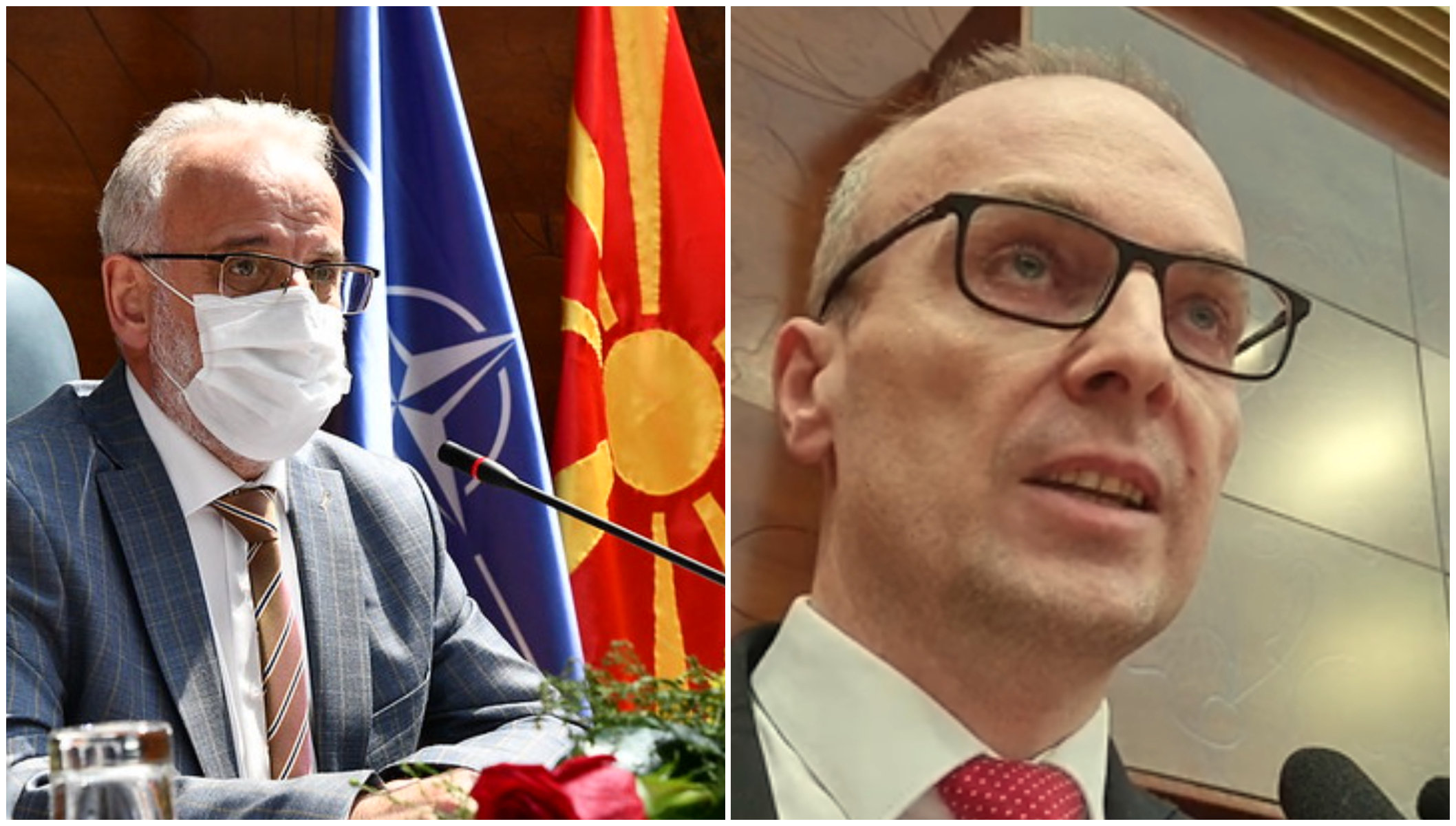It is undemocratic to resolve a political battle with law enforcement agencies

Intervention of coercive bodies for the functioning of the Assembly is an undemocratic act. Ultimate action in the Parliament as a threat is not acceptable either. I do not appreciate whether the action of the chairman of the commission is justified or not, but the solutions should be sought in the parliament, and not through the law enforcement bodies, says the criminal Gordan Kalajdziev.
It is inappropriate and undemocratic the threat of the President of the Assembly Talat Xhaferi through law enforcement agencies to call for resolving the political battle and functioning of the Assembly, he believes prof. Dr. Gordan Kalajdziev, criminal at the Faculty of Law "Iustinianus Primus". Xhaferi previously called on the institutions to protect the Constitution so that the Assembly can work smoothly. He did not mention the MP by name, but it is clear that he is alluding to the chairman of the Parliamentary Committee on Foreign Affairs Antonio Milososki from VMRO-DPMNE, who does not convene the session for election of ambassadors.
Kalajdziev for "Free Press" says that Article 353 of the Criminal Code, referred to by Xhaferi, refers more to persons involved in corrupt activities.
- The threat of the President of the Assembly is inappropriate. This is more of a political struggle and it is inappropriate to deal with law enforcement agencies such as the Ministry of Interior or the Prosecutor's Office. Intervention of coercive bodies for the functioning of the Assembly is an undemocratic act. Ultimate action in the Parliament as a threat is not acceptable either. I do not appreciate whether the action of the chairman of the commission is justified or not, but the solutions should be sought in the parliament, and not through the law enforcement bodies - says Kalajdziev.
Article 353 of the Criminal Code, referred to by Xhaferi, refers to the abuse of official position and authority. "An official who by using his official position or authority, by exceeding the limits of his official authority or by not performing his official duty will gain any benefit for himself or for another or will harm another, shall be punished with imprisonment. from six months to three years ", this article provides.
Kalajdziev adds that the political responsibility for abuse of office should be assessed and resolved within the Assembly. It is interesting that Kalajdziev himself wanted to sue Xhaferi according to that article, but precisely because of the inadequacy because it is a legislature, he changed his mind.
- Xhaferi for three years did not want to approve the account for the body for control of wiretapping in which Margarita Caca Nikolovska and I were elected by the Assembly, although there was money for its functioning. He refused to sign an account so that the body could function. With that, Xhaferi directly prevented us from performing the function for which we were elected. This is the same situation that Xhaferi now says about Milososki. Caca Nikolovska and I resigned and no one cared about that - says Kalajdziev.
Although we asked, we did not receive an answer from the President of the Assembly why he did not file criminal charges against Milososki. Is it a form of pressure on the opposition MP, because it is clear that Milososki has parliamentary immunity that can be taken away only if he is caught committing a crime for which a prison sentence of at least five years is prescribed, which in this case is not e.
Xhaferi said in an interview with Sitel TV that he expects the institutions to act.
- There is a statement by the chairman of the commission: "I will not hold a commission because I will not allow him and he to go there and there." A public statement by the chairman of a commission that he will not allow, and he is obliged to do so by the Rules of Procedure, is contrary to the Criminal Code. There are institutions that need to evaluate and evaluate it. Nowhere in the world can anyone prevent the Assembly from completing its functions, at least the chairmen of the committees. The chairmen of the commissions are placed above the plenum and this should be dealt with by other institutions. "If I say this publicly, and I am obliged to do it, according to the Criminal Code, it is defined in Article 353. There are institutions that should protect the Constitution and the rule of law," Xhaferi said.
Milososki recently announced that as chairman of the Foreign Policy Committee he will make every effort in New York not to allow Ljubomir Frckoski to represent us. His reaction came after Xhaferi announced that the Parliament had received a notification from the Ministry of Foreign Affairs that Frckoski would be the ambassador of Northern Macedonia at the UN headquarters in New York.


